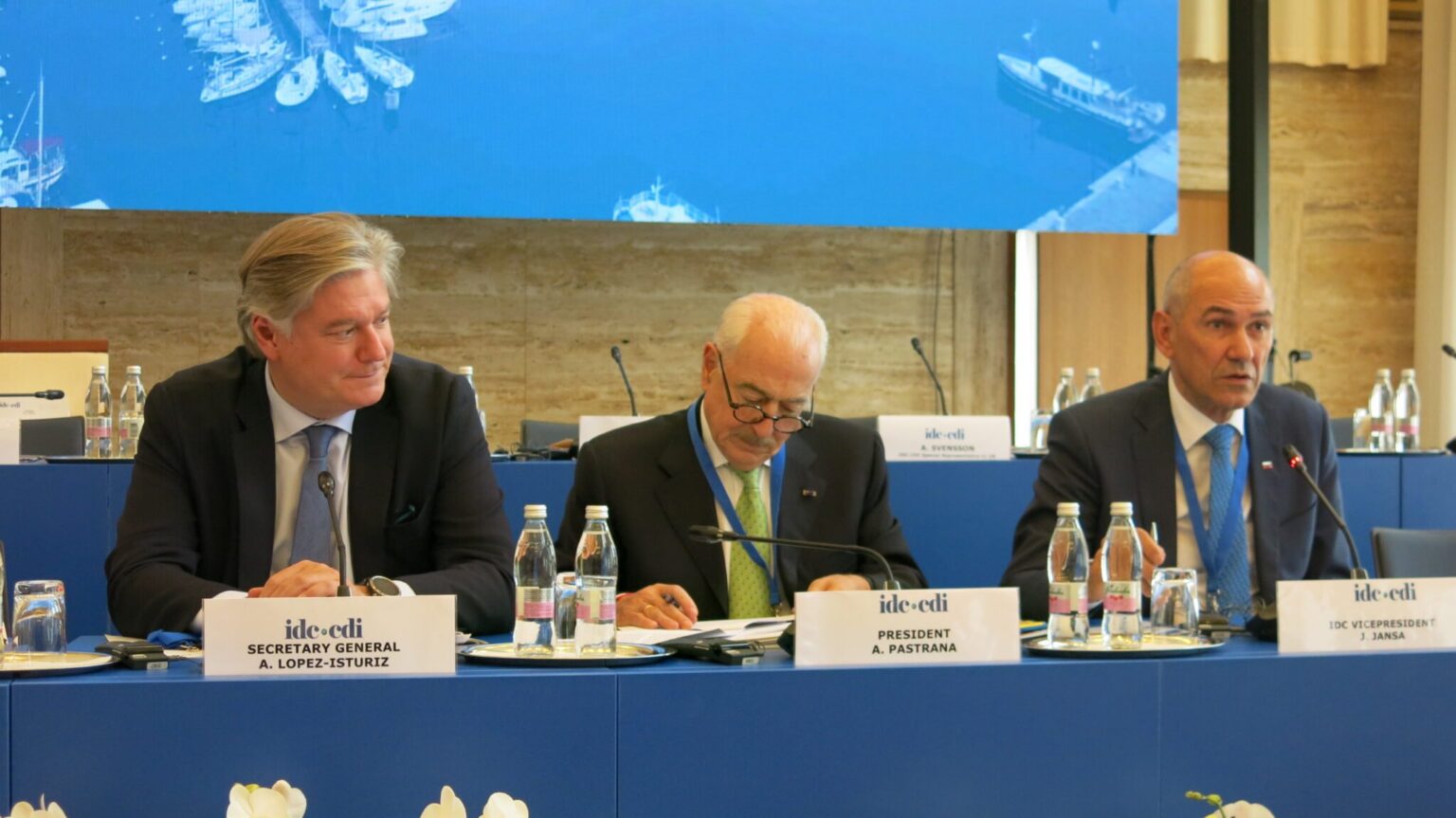By: Sara Kovač (Nova24.si)
In recent days, a meeting of the Executive Committee and the Assembly of the Centrist Democrat International (IDC-CDI) took place in Bled near Kranj, Slovenia. The event was attended by presidents and former presidents of governments and countries. On Thursday, the Executive Committee adopted several declarations, one of which also concerns Slovenia. Foreign statesmen note with sadness that the communist iconography is being revived again in Slovenia and that the victims of the former system are being mocked by those in power.
The IDC-CDI brings together 109 political parties from 83 countries. The international community unites parties on the basis of their Christian democratic convictions. It was founded in 1961 in Santiago, the capital of Chile. Parties from all over the world have joined the Association since. Most of the members are from Europe and Latin America. On Thursday, the Executive Board approved three more members, and both Janez Janša and IDC-CDI President Andrés Pastrana Arango are pleased to see their family growing.
At the meeting, the IDC-CDI Assembly considered 13 proposed resolutions related to current global political challenges, which, as Janša pointed out, address threats to peace, democracy, and citizen security. They also intend to address them through a general supporting resolution drafted by the Slovenian Democratic Party (Slovenska demokratska stranka – SDS) in cooperation with the Association’s secretariat.
Regarding the threats to peace, the resolution on Ukraine was also discussed, among other things. As Janša pointed out, there are no differences of opinion among the members of the Alliance on the condemnation of the Russian aggression against Ukraine. “There are, however, some nuances in positions as to whether we will ultimately come out of this situation and resolve it by a military victory alone or by a combination of a successful defence of Ukraine and peace talks,” Janša explained.
Regarding threats to the security of citizens directly exposed to judicial or extrajudicial persecution and even torture because of their political activity, resolutions have been drafted to address the situation in Nicaragua and Cuba. They also discussed pressing problems in this area in a number of other countries. And regarding threats to democracy, they have drawn up resolutions dealing with the situation in Colombia and Madagascar and, as Janša said, to some extent in Slovenia.
At the meeting, members also discussed the resolution on pressures on the media in Slovenia
The SDS party proposed that the meeting adopt a resolution to address pressures on the media. “This is about the pressures on the national media outlet Radio-Television Slovenia (RTVS), and also on the Constitutional Court, which is considering the case of the suspension of the new Radio-Television Slovenia Act,” Janša said, adding that in the coming weeks, it would become clear on the basis of this situation “whether we can talk about freedom of the media in Slovenia, or whether there is a complete domination of one, you could say a neo-communist, political option when it comes to the mainstream media.” At the same time, in light of recent developments, the SDS party also tabled an amendment to the motion for a resolution to condemn our government’s action in abolishing the Day of Remembrance for the Victims of Communist Violence. In light of the discussion at the Executive Board meeting, Janša counted on the support of the other members of the Alliance.
Foreign statesmen: It comes as a shock and a negative surprise that the government has abolished the Day of Remembrance for the Victims of Communism
“When we talked to our colleagues, they were all extremely surprised that such a thing could happen in a country where we have more than 700 killing sites, where historians have thoroughly researched a certain period, and where tens of thousands of descendants of victims who died or suffered under the communist regime live. And everyone is especially saddened when they hear that the government’s decision was taken a few hours before the day should have been commemorated, in the middle of a mourning ceremony with prayers and candle lighting, without any real justification,” Janša said.
IDC-CDI’s Executive Secretary Antonio López-Istúriz said that it was a real shock, a negative surprise, especially for the European Member States, that the Slovenian government did something like this. “The worst thing that can happen is for people to try and change history with decrees and decisions. This is dangerous, and it was common in other times, but not in today’s Slovenia and Europe,” he stressed. He recalled that resolutions had been adopted in the European institutions on the crimes of the communist and Nazi regimes. However, he said, the Slovenian government had adopted a decision that contradicted these resolutions. He, therefore, believes that the government of Robert Golob should reconsider this matter.
